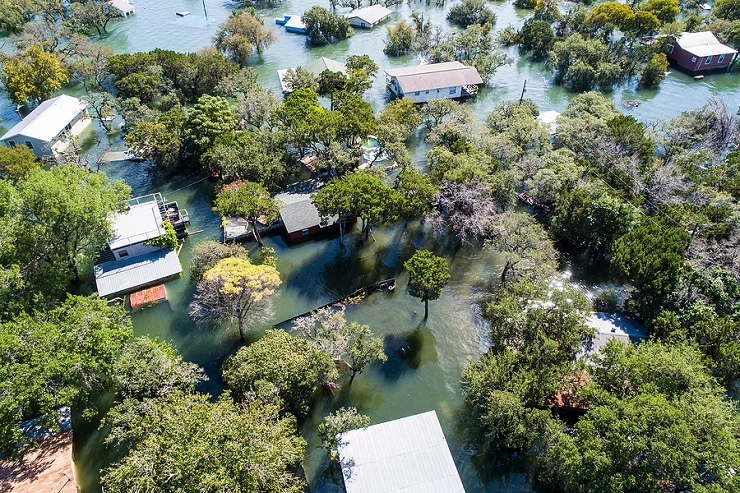When it comes to flood risk, what homeowners don’t know can absolutely hurt them. A single flooding event can cause significant damage, but many homeowners don’t understand the risks. New flood maps could give homeowners the information they need to prepare, and it’s raising a question – should real estate websites include flood risk information?
Flood Risk May Be Increasing – and It Isn’t Covered by Homeowners Insurance
A flood can cause devastating damage, and a typical homeowners insurance policy won’t cover it. According to the Insurance Information Institute, the average flood claim in 2018 was $42,580. Some years, it can be even worse. In 2017, when Hurricanes Harvey, Irma and Maria hit, the average claim was $91,735.
That’s a lot more than many people can afford to pay out of pocket, but flood damage is excluded from standard homeowners insurance. At-risk homeowners need flood insurance – and many don’t have it. According to USA Today, about 80% of Hurricane Harvey victims lacked flood insurance and faced big bills as a result.
In many cases, the lack of coverage may be due to a lack of awareness. FEMA’s flood maps have typically been used to determine risk, but the accuracy of these maps has been called into question. Some people feel they have become outdated. According to CNN, a report from the First Street Foundation found that 14.6 million properties may have a significant risk of flooding, and that’s 70% more than are in FEMA’s Special Flood Hazard Areas. As climate changes brings more changes and bigger storms, flood risks may increase.
New Flood Maps Provide Current Risk Information
To provide homeowners with the information they need to assess their risks, First Street has developed Flood Factor, a free online tool that can be used by anyone to understand the flooding risk of an area. If you enter an address, ZIP code, city or state, you’ll get detailed information about the risk level and what it means.
NPR reports that Realtor.com has become the first real estate site to disclose flood risk information for houses. The site will include information from both FEMA and First Street.
Should Real Estate Companies Provide Flood Risk Information?
Flood risk information is of obvious use to potential buyers who want to avoid investing in a home that is likely to suffer major damage in the coming years and decades. On the other hand, many houses are vulnerable to various disasters – floods, fires, tornadoes, hurricanes and earthquakes, for example – and revealing this information on the listing could decrease the property’s value.
Before deciding whether or not to include this information, as well as how to include it, real estate firms will have to weigh the pros and cons. They should also have a conversation with their insurance partner to understand how doing so, or failing to do so, might affect their professional liability exposure. Contact us if you have questions.


